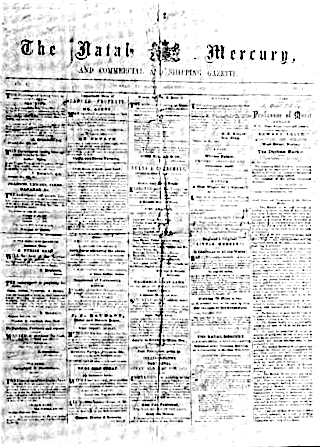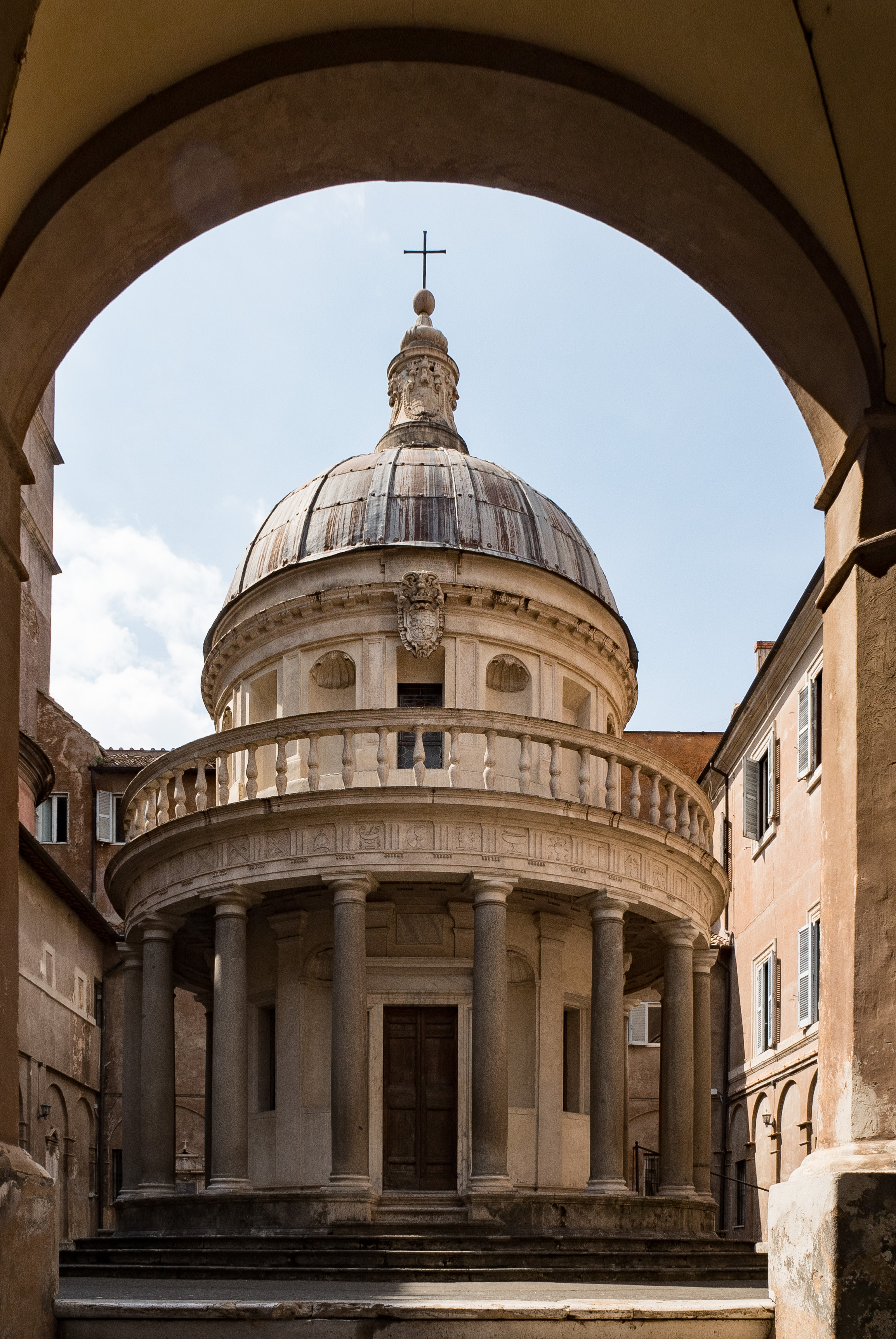|
Durban Club
In May 1854 Durban had a population of 1,204 settlers which meant that it qualified to be elevated to the status of a Borough. On 14 June 1854, 20 prominent Durban residents signed an agreement to form the first D'Urban Club, named after Sir Benjamin D'Urban, Governor of the Cape Colony. The newly formed club was to be used for the playing of billiards, chess and as a reading and newsroom. In February 1855 a piece of land was purchased in Smith Street from the widow Strydom for £15. The clubhouse they built was a wood and thatch structure measuring by . The walls and "bafta" ceilings were covered in Sanderson's wallpaper. The ground was hardened with lime refuse and the property was enclosed with of post and rail fencing. In 1861 the members decided that a new, more permanent clubhouse needed to be built. They bought a piece of land adjoining the first clubhouse for £1,045 and a new double story clubhouse was built. The Natal Mercury of October 2, 1863 described it "The new ... [...More Info...] [...Related Items...] OR: [Wikipedia] [Google] [Baidu] |
City
A city is a human settlement of notable size.Goodall, B. (1987) ''The Penguin Dictionary of Human Geography''. London: Penguin.Kuper, A. and Kuper, J., eds (1996) ''The Social Science Encyclopedia''. 2nd edition. London: Routledge. It can be defined as a permanent and densely settled place with administratively defined boundaries whose members work primarily on non-agricultural tasks. Cities generally have extensive systems for housing, transportation, sanitation, utilities, land use, production of goods, and communication. Their density facilitates interaction between people, government organisations and businesses, sometimes benefiting different parties in the process, such as improving efficiency of goods and service distribution. Historically, city-dwellers have been a small proportion of humanity overall, but following two centuries of unprecedented and rapid urbanization, more than half of the world population now lives in cities, which has had profound consequ ... [...More Info...] [...Related Items...] OR: [Wikipedia] [Google] [Baidu] |
Country
A country is a distinct part of the world, such as a state, nation, or other political entity. It may be a sovereign state or make up one part of a larger state. For example, the country of Japan is an independent, sovereign state, while the country of Wales is a component of a multi-part sovereign state, the United Kingdom. A country may be a historically sovereign area (such as Korea), a currently sovereign territory with a unified government (such as Senegal), or a non-sovereign geographic region associated with certain distinct political, ethnic, or cultural characteristics (such as the Basque Country). The definition and usage of the word "country" is flexible and has changed over time. '' The Economist'' wrote in 2010 that "any attempt to find a clear definition of a country soon runs into a thicket of exceptions and anomalies." Most sovereign states, but not all countries, are members of the United Nations. The largest country by area is Russia, while the ... [...More Info...] [...Related Items...] OR: [Wikipedia] [Google] [Baidu] |
Durban Club Building
Durban ( ) ( zu, eThekwini, from meaning 'the port' also called zu, eZibubulungwini for the mountain range that terminates in the area), nicknamed ''Durbs'',Ishani ChettyCity nicknames in SA and across the worldArticle on ''news24.com'' from 25 October 2017. Retrieved 2021-03-05.The names and the naming of Durban Website ''natalia.org.za'' (pdf). Retrieved 2021-03-05. is the third most populous city in after and |
South Africa
South Africa, officially the Republic of South Africa (RSA), is the southernmost country in Africa. It is bounded to the south by of coastline that stretch along the South Atlantic and Indian Oceans; to the north by the neighbouring countries of Namibia, Botswana, and Zimbabwe; and to the east and northeast by Mozambique and Eswatini. It also completely enclaves the country Lesotho. It is the southernmost country on the mainland of the Old World, and the second-most populous country located entirely south of the equator, after Tanzania. South Africa is a biodiversity hotspot, with unique biomes, plant and animal life. With over 60 million people, the country is the world's 24th-most populous nation and covers an area of . South Africa has three capital cities, with the executive, judicial and legislative branches of government based in Pretoria, Bloemfontein, and Cape Town respectively. The largest city is Johannesburg. About 80% of the population are Black Sou ... [...More Info...] [...Related Items...] OR: [Wikipedia] [Google] [Baidu] |
Benjamin D'Urban
Lieutenant General Sir Benjamin D'Urban (16 February 1777 – 25 May 1849) was a British general and colonial administrator, who is best known for his frontier policy when he was the Governor in the Cape Colony (now in South Africa). Early career D'Urban was born in Halesworth, the youngest but only surviving son of Benjamin D'Urban, and joined the British Army in 1793, enlisting as a cornet in the Queen's Bays at the age of sixteen. He made rapid progress in the Army and distinguished himself in the Peninsular War. Assigned to the Portuguese army, he was quartermaster general and chief-of-staff to William Carr Beresford, 1st Viscount Beresford. He served in all the principal sieges and battles, never asked to go on leave, and was laden with honours, being appointed Knight Grand Cross of the Order of the Bath, Knight Commander of the Royal Guelphic Order, and Commander of the Portuguese Order of the Tower and Sword. He received the Army Gold Cross and five clasps for the ... [...More Info...] [...Related Items...] OR: [Wikipedia] [Google] [Baidu] |
Cape Colony
The Cape Colony ( nl, Kaapkolonie), also known as the Cape of Good Hope, was a British colony in present-day South Africa named after the Cape of Good Hope, which existed from 1795 to 1802, and again from 1806 to 1910, when it united with three other colonies to form the Union of South Africa. The British colony was preceded by an earlier corporate colony that became an original Dutch colony of the same name, which was established in 1652 by the Dutch East India Company (VOC). The Cape was under VOC rule from 1652 to 1795 and under rule of the Napoleonic Batavia Republic from 1803 to 1806. The VOC lost the colony to Great Britain following the 1795 Battle of Muizenberg, but it was acceded to the Batavia Republic following the 1802 Treaty of Amiens. It was re-occupied by the British following the Battle of Blaauwberg in 1806, and British possession affirmed with the Anglo-Dutch Treaty of 1814. The Cape of Good Hope then remained in the British Empire, becoming self- ... [...More Info...] [...Related Items...] OR: [Wikipedia] [Google] [Baidu] |
The Mercury (South Africa)
''The Mercury'', formerly ''The Natal Mercury'', is an English-language newspaper owned by Independent Media (Pty) Ltd, a subsidiary of Iqbal Survé’s Sekunjalo Investments and published in Durban Durban ( ) ( zu, eThekwini, from meaning 'the port' also called zu, eZibubulungwini for the mountain range that terminates in the area), nicknamed ''Durbs'',Ishani ChettyCity nicknames in SA and across the worldArticle on ''news24.com'' from ..., South Africa. Content The paper focuses on the important national and local news of the day, with background and analysis. Its leader and opinion pages offer a platform for a diversity of views and aims to foster informed debate. The daily Business Report within ''The Mercury'' contains news on international market trends, and national company and business news. Weekly supplements include the GoodLife, Motoring, and Network. Network (on Wednesday) specifically focuses on KZN business, property and shipping news. The Zululand ... [...More Info...] [...Related Items...] OR: [Wikipedia] [Google] [Baidu] |
Second Boer War
The Second Boer War ( af, Tweede Vryheidsoorlog, , 11 October 189931 May 1902), also known as the Boer War, the Anglo–Boer War, or the South African War, was a conflict fought between the British Empire and the two Boer Republics (the South African Republic and the Orange Free State) over the Empire's influence in Southern Africa from 1899 to 1902. Following the discovery of gold deposits in the Boer republics, there was a large influx of "foreigners", mostly British from the Cape Colony. They were not permitted to have a vote, and were regarded as "unwelcome visitors", invaders, and they protested to the British authorities in the Cape. Negotiations failed and, in the opening stages of the war, the Boers launched successful attacks against British outposts before being pushed back by imperial reinforcements. Though the British swiftly occupied the Boer republics, numerous Boers refused to accept defeat and engaged in guerrilla warfare. Eventually, British scorched earth po ... [...More Info...] [...Related Items...] OR: [Wikipedia] [Google] [Baidu] |
Edwardian Era
The Edwardian era or Edwardian period of British history spanned the reign of King Edward VII, 1901 to 1910 and is sometimes extended to the start of the First World War. The death of Queen Victoria in January 1901 marked the end of the Victorian era. Her son and successor, Edward VII, was already the leader of a fashionable elite that set a style influenced by the art and fashions of continental Europe. Samuel Hynes described the Edwardian era as a "leisurely time when women wore picture hats and did not vote, when the rich were not ashamed to live conspicuously, and the sun really never set on the British flag." The Liberals returned to power in 1906 United Kingdom general election, 1906 and made Liberal welfare reforms, significant reforms. Below the upper class, the era was marked by significant shifts in politics among sections of society that had largely been excluded from power, such as Laborer, labourers, servants, and the industrial working class. Women started to play ... [...More Info...] [...Related Items...] OR: [Wikipedia] [Google] [Baidu] |
Renaissance Style
Renaissance architecture is the European architecture of the period between the early 15th and early 16th centuries in different regions, demonstrating a conscious revival and development of certain elements of ancient Greek and Roman thought and material culture. Stylistically, Renaissance architecture followed Gothic architecture and was succeeded by Baroque architecture. Developed first in Florence, with Filippo Brunelleschi as one of its innovators, the Renaissance style quickly spread to other Italian cities. The style was carried to Spain, France, Germany, England, Russia and other parts of Europe at different dates and with varying degrees of impact. Renaissance style places emphasis on symmetry, proportion, geometry and the regularity of parts, as demonstrated in the architecture of classical antiquity and in particular ancient Roman architecture, of which many examples remained. Orderly arrangements of columns, pilasters and lintels, as well as the use of semicircula ... [...More Info...] [...Related Items...] OR: [Wikipedia] [Google] [Baidu] |
Bed And Breakfast
Bed and breakfast (typically shortened to B&B or BnB) is a small lodging establishment that offers overnight accommodation and breakfast. Bed and breakfasts are often private family homes and typically have between four and eleven rooms, with six being the average. In addition, a B&B usually has the hosts living in the house. ''Bed and breakfast'' is also used to describe the level of catering included in a hotel's room prices, as opposed to room only, half-board or full-board. International differences China In China, expatriates have remodelled traditional structures in quiet picturesque rural areas and opened a few rustic boutique hotels with minimum amenities. Most patrons are foreign tourists but they are growing in popularity among Chinese domestic tourists. India In India, the government is promoting the concept of bed & breakfast. The government is doing this to increase tourism, especially keeping in view of the demand for hotels during the 2010 Commonwealth Game ... [...More Info...] [...Related Items...] OR: [Wikipedia] [Google] [Baidu] |






